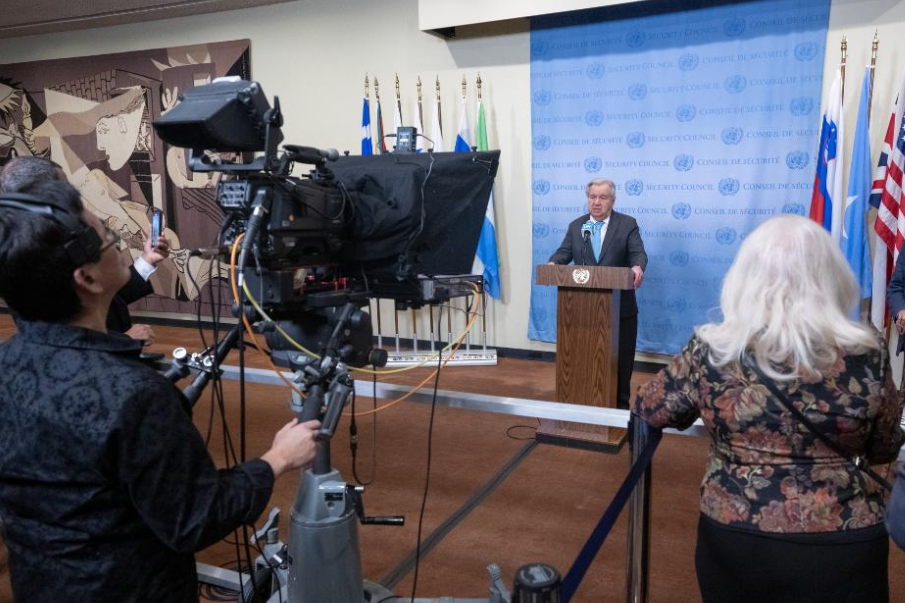Britain faces 'critical moment' in pandemic


University towns fear student influx could lead to widespread infection
Britain could see nearly 50,000 new COVID-19 cases daily by mid-October if infections continue to double every seven days, according to the nation's chief scientific advisor, Patrick Vallance.
Urgent action is required to slow the pandemic's spread, said Vallance, who was speaking at a Downing Street briefing on Monday that aimed to set out potential scenarios as cases in the United Kingdom continue to rise.
Vallance warned that if this worst-case scenario occurred it would lead to "200-plus deaths a day" by mid-November.
Chief medical advisor, Chris Whitty, also at the briefing, confirmed daily cases have returned to levels last seen in May, and that the R number, which shows the spread of the virus, is now between 1.1 and 1.4.
Whitty warned that infection rates are "heading in the wrong direction"-and the country is at a "critical point" in the pandemic. He added: "This is not someone else's problem, this is all of our problem."
It is likely the virus will benefit from the change in seasons to fall and winter, Whitty added. It will be a "six-month problem that we will have to deal with collectively," he said.
"What we've seen is a progression where, after the remarkable efforts which got the rates right down across the country, first we saw very small outbreaks, maybe associated with a workplace or another environment, then we've seen more localized outbreaks which have got larger over time, particularity in the cities," said Whitty.
The pair warned that the UK could replicate countries such as Spain and France that are experiencing a second surge of infections.
Parts of the Spanish capital Madrid went into a tough new lockdown on Monday. More than 800,000 residents have been asked to stay at home and are not allowed to leave the areas they live in, except to go to work and for emergency medical treatment.
Numbers are now increasing across the UK in all age groups, said Vallance. "It is now estimated that about 70,000 people in the UK have the COVID-19 infection and around 6,000 per day are getting the infection," he said.
Vallance added that there was progress being made on vaccines. He suggested the UK was in a "good position" and that it was possible that a vaccine could be available by the end of the year in small amounts for certain groups. "In the meantime we have got to get in control of this," he added.
The scientists, giving their first news conference without the company of a politician, revealed that just 8 percent of the UK's population is thought to have had the virus.
Analyzing the news briefing for BBC News, Mark Walport, the government's former chief scientific advisor, said the figures show the consequences of exponential growth and "dispelled myths that the virus is becoming mild, and the mistaken idea that lots of people had become infected". He added: "The truth is that the vast majority of the population is still susceptible."
British government officials have stressed that plans for handling the surge stop short of a full national lockdown. Prime Minister Boris Johnson is expected to address the nation on Tuesday to outline any new restrictions that may be introduced.
A survey has shown more than half of people living in UK university towns and cities fear the return of students will lead to COVID-19 infection spikes.
Tens of thousands of students will return to, or begin, studies in the coming days and weeks. The poll, carried out by the University and College Union (UCU) and published by The Observer newspaper, has suggested 57 percent of people in these areas fear the students' arrival could trigger fresh local lockdowns.
The paper's report said the poll shows the public now wants online learning to be the default position as just 35 percent agree with the government that in-person learning should continue as far as possible.
A Guardian newspaper report suggests rental incomes in some parts of London have tumbled by up to 20 percent, with one of the factors being the fall in the number of international students seeking accommodation.
One of the capital's biggest lettings agents told the newspaper that lockdowns and restrictions in the UK and around the world had made a "dramatic impact".
Chestertons said that between June and September, 30 percent of its central London tenants were usually international students, and highlighted a report issued in June that warned of "a potential drop in international students of 50 percent to 75 percent" this fall.

































